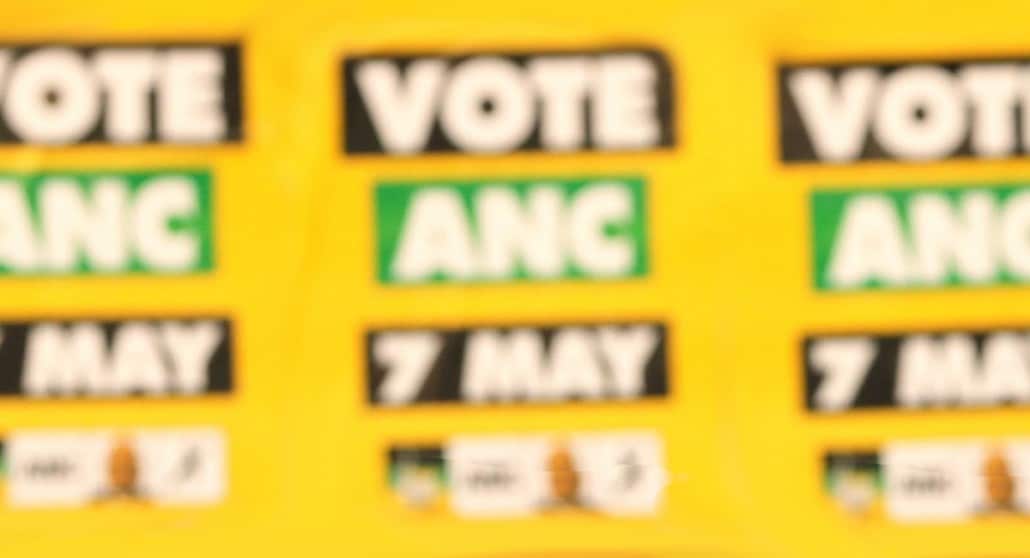By Leanne Govindsamy
First published on News24
The very first section of South Africa’s Constitution sets out the founding values of our democratic state and its aspirations to a society which is non-racial, non-sexist and which advances human dignity and human rights and freedoms. Core to these founding values is the right to vote, the right to regular elections and “a multi-party system of democratic government, to ensure accountability, responsiveness and openness.”
Every citizen is entitled to exercise his or her right to vote within this multi-party system of democratic government which should be accountable, responsive and open. However, a key question relating to political party functioning and governance has remained unanswered for many years – who funds political parties?
Civil society organisations such as My Vote Counts have led the way in terms of demanding accountability and transparency in relation to party financing but have been met with resistance because this particular issue is not well regulated and is prone to secrecy. This inevitably leads to suspicion about the sources of funding and why political parties would want to hide these sources.
Corruption Watch and its civil society partners were therefore taken by surprise when an ad hoc parliamentary committee was set up under the wise and astute leadership of chairperson Vincent Smith, to guide the process of amending current legislation and better regulating the financing of political parties represented in both the national and provincial legislature.
The committee aims to have draft amendments available by this coming November and although many concerns have been raised about the exceptionally short time frames, the chairperson has emphasised that civil society and members of the public will have every opportunity to engage thoroughly with this important process.
The first round of oral submissions to the committee took place in the second week of August. Taking into account the key issues of ensuring transparency of all private and foreign donations and the percentage allocation of public funding to political parties, we relied heavily on the OECD Framework on Financing Democracy and Supporting Better Public Policies and Averting Policy Capture to explain the various options available to the committee in regulating amidst a complex environment consisting of multi-stakeholder interests and concerns.
It is important to note that South Africa is woefully behind in improving its regulatory environment compared to other countries.
Private donations include funding from corporations (especially corporations that have government contracts or partial government ownership), investment arms owned by political parties, trade unions, NGOs, foreign governments and any other sources of funding that are not part of publicly allocated funds.
Corruption Watch has been at pains to stress in both written and oral submissions before the committee that transparency is key in relation to private funding. If there are policy considerations that operate against transparency, then there are a variety of models that could be used to ensure that funds are channelled through a common fund or to introduce bans that limit the risk of influence by private and foreign donors over political parties.
Another aspect of regulation could involve encouraging private donors to reveal information about donations to political parties. In this regard, businesses have a major role to play in ensuring that our political parties are free from undue influence, and that particular support for a party of their choice should never translate into influence over policy and other decisions made by that party.
Businesses should also acknowledge their role in advancing the multi-party democratic government, rather than private interests. It is interesting to note that not a single private entity or business made written or oral submissions to the committee despite the potential impact on disclosures of private funding sources.
In relation to public funding, again Corruption Watch did not make specific suggestions on the percentage allocation of public funds to political parties but drew the committee’s attention to broad principles which should guide their policy decisions.
One principle which was of interest to the committee was that of “levelling the playing field”. In this regard, Corruption Watch does not submit that all public funding should be allocated equally but that equity should be a consideration in any change to the current allocations of public funding.
Start-up and smaller political parties that meet a particular threshold of representation should be able to access funding and public resources in order to advance their political aims and participate in the multi-party system. This could involve a certain minimum allocation, or increased access to public resources, or any number of options that would ensure that they are catered for.
Of course, larger political parties need more resources because they have larger constituencies and more administrative and operational costs but smaller and start-up parties should also be able to, at the very least, justify any increase in their funding by presenting their budgets and operating costs for consideration to a regulatory body.
With regard to both private and public funding, certain ground rules are going to be essential to ensure that regulations are implemented effectively.
These include the resourcing of an independent regulatory body with powers to both monitor and sanction as well as dissuasive sanctions; a requirement that political parties report their funding sources comprehensively and in a timely, reliable, accessible and intelligible manner so as to ensure media and civil society scrutiny over such disclosures; provision for whistleblower protection; and a mechanism for reporting corruption and maladministration, as well as strategies for mitigating any risks arising from the new regulation.
Corruption Watch will continue to engage in this process and provide information on how members of the public can participate.
• Leanne Govindsamy is the head of legal and investigations at Corruption Watch.

